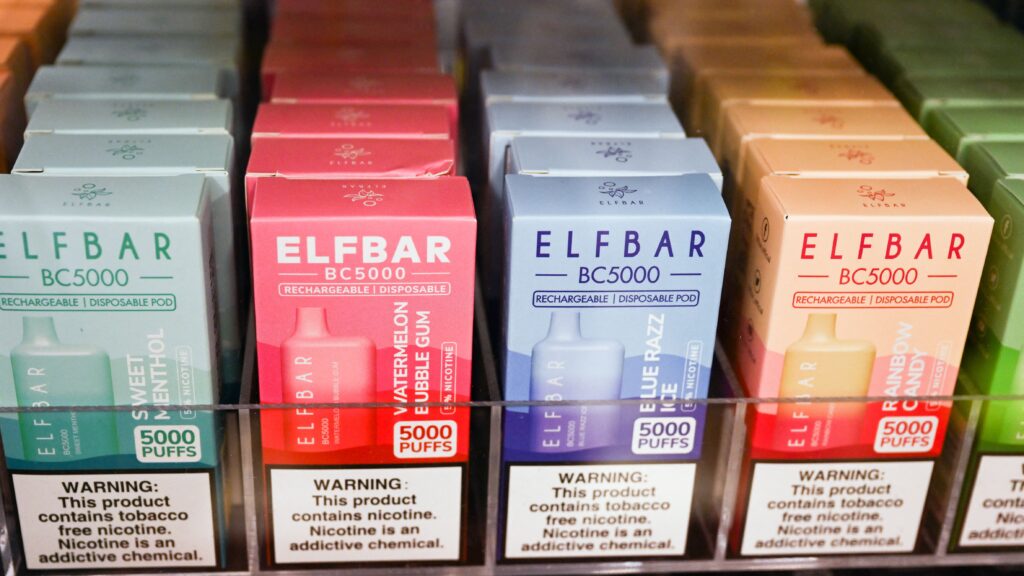WASHINGTON — A popular Chinese vape company says it is donating thousands of dollars to the American Cancer Society in an effort to stop youth vaping, but the cancer organization says it never agreed to the partnership, and it’s ordering the company to stop.
The company, Elf Bar, announced in January it was creating a program, dubbed the “Lighthouse Guardian Program,” to prevent youth vaping. Part of that program included a pledge to donate to the American Cancer Society for every person that clicked a button on Elf Bar’s website. The company claimed in a since-deleted press release that “the total amount of our donation will be over ten thousand dollars.”
But in a statement, the American Cancer Society told STAT it would not accept the donations, and that it has ordered the company to stop telling the public the two are working together. (ACS, like STAT, receives funding from Bloomberg Philanthropies.)
advertisement
“The American Cancer Society does not partner with or accept funds from tobacco companies and has sent a cease and desist letter to Elf Bar to prevent further public deceit,” said Timothy Phillips, the group’s chief legal officer, in a statement.
Phillips declined an interview but shared an excerpt of the group’s cease and desist letter through a spokesperson, which said the organization is demanding Elf Bar “immediately cease all use of the American Cancer Society name that falsely implies association with ACS,” including removing all mention of ACS in the company’s marketing materials “and any future use of ACS trademarks.”
advertisement
One expert speculated that ACS could take Elf Bar to court for “false advertising or false endorsement,” and that a judge would likely order Elf Bar to stop using the group’s name.
“They would likely have to go to court, but if the facts are as you stated I think a court would be willing to grant a preliminary injunction,” said Mark A. Lemley, a trademark law expert at Stanford Law School.
Thirty thousand people have so far signed up for Elf Bar’s Lighthouse program. Users are required to enter their email when signing up; it’s unclear whether Elf Bar will use those emails for marketing purposes.
Tobacco control groups and media outlets are increasingly calling out Elf Bar, which makes disposable vapes in flavors like cola, cotton candy, and “watermelon jolly candy ice,” for its role in fueling youth vaping. Its products are overwhelmingly popular on TikTok, where the hashtag Elf Bar has 1.6 billion views. Prominent videos include one in which a person unboxes an Elf Bar-themed water bottle, another showing off a homemade device that lets people use multiple Elf Bars at once, and another that features a man dressed as an Elf Bar for Halloween.
National survey data from 2022 found that more than half of current high-school-age vapers used disposable products like Elf Bar, though the company was not listed as one of the most popular brands that year.
There’s scant information available online about who owns and operates Elf Bar. Press releases list the CEO of the company as Victor Xiao, who does not maintain a robust internet presence. The package of an Elf Bar for sale in Washington stated the product was made by Guangdong Qisitech Company for Imiracle (Shenzhen) Technology Company. Both companies are based in China.
Elf Bar could not be reached for comment. The company’s initial press release, posted on the public relations website PR Newswire, appears to have been deleted, but the pledge to donate to the American Cancer Society is still posted on the company’s official Facebook page.
STAT’s coverage of the commercial determinants of health is supported by a grant from Bloomberg Philanthropies. Our financial supporters are not involved in any decisions about our journalism.


